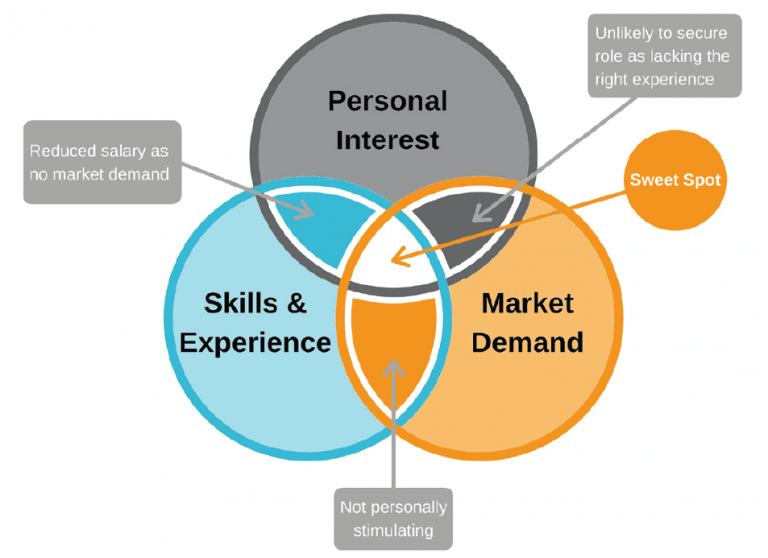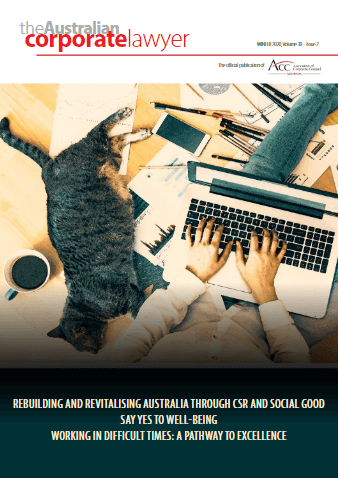Even though I have since moved back to a new role in Australia—a country that was largely unscathed by the GFC—I’ve never forgotten those times and experiences of the GFC in London.
In speaking with lawyers during the current crisis, many welcome hearing the range of useful steps they can take if they are currently looking for work or anticipating that they may soon need to be looking—so I would like to share them with you too, in case you or someone you know may need them in the months ahead.
Cut Yourself Some Slack
Job loss ranks among one of the highest in stress on a list of life- altering events such as a death in the family, divorce and serious illness.
As with grief, people who have lost their job typically experience four stages: denial, anger, frustration and, eventually, adaptation. You will know you are ready to start looking when you no longer view the job loss as a negative experience, but rather one to be embraced as an exciting opportunity.
A Chance to Demonstrate Resilience
Unlike previous ‘commercial’ recessions, this is a ‘government engineered’ recession and people are losing their jobs through no fault of their own, the company they worked for or the industry they worked in. The changes have been indiscriminate and everyone knows this, including the person reviewing the job applications.
How you manage your job loss is an excellent opportunity to demonstrate your resilience, fortitude and adaptability—skills that are always in high demand.
Starting the Process
Treat the job search like a project that your best friend is paying you to undertake
The task of looking for a role is often ‘too close and raw’ that it is not treated with the importance or discipline it warrants— structure is paramount; set objectives, time frames, KPIs and milestones. Excel spreadsheets are excellent for tracking timelines, jobs applied for and follow-up dates.
While job hunting is a serious business, it does not have to be boring—give the project a cool name, like ‘Project Wild Falcon’, have a logo, a motto and a theme song … ‘It’s a Beautiful Day’ – U2, ‘Feeling Good’ – Nina Simone, are two that I have used.
Know What you are Looking For
Define the role you are looking for
Determine what are the factors that are important for you in your next role, e.g. salary, leadership, short commute. Rank and weight each of the factors, determining those that are deal breakers and those that would be nice-to-haves. To identify which elements are important, look at job advertisements and highlight different aspects that appeal to you. You will need to weigh up a range of factors such as what you would like to do, what you can do and what the market wants to be done. Find where each of them overlaps to determine your perfect role (Figure 1).

Figure 1: How to Identify your Perfect Role
Finding the Roles
- Use online job platforms: LinkedIn, Seek and the ACC Careers Board are some of the most popular online portals for lawyers. Set up job alerts on these sites so you are emailed about new jobs and the job market daily—become an informed consumer. Remember, job ads are employers’ wish lists, you do not have to meet all the criteria to apply.
- Engage with and expand your personal network: communicate with people in your network. Have coffee with them or a videoconference and ask them about the market and what they are seeing. Engage with the ACC, attend their events and get to know the movers and shakers in your profession.
- Recruiters: Connect with and meet the recruiters to find out more about the market and see whether they have any suitable jobs. Ensure they don’t send your details to any organisation without your consent. Stay front of mind with them, contacting them every two weeks to check in. Do not assume that recruiters put all the roles online, at a guess I would say only 20% are posted.
- Dovetail: Keep up to date with Dovetail’s roles on our current roles page
Applying for Roles
Your CV must be impeccable
- If you are wondering where to start, Microsoft Word has excellent CV templates and has a ‘Resume Assistant’
- Use colour—CVs are more often viewed on colour screens, rather than just printed out
- Use subheadings, bullet points and formatting to make it accessible and easy to navigate
- Think of it as your personal marketing brochure
- Do not have any blank time gaps in your CV as they arouse suspicion—the reader will not assume you’re working on your Nobel Prize speech, rather that you have been languishing in a South American prison…
- Your CV will be used as an example of your drafting ability—it must be perfect
- No more than four pages—and don’t even think of reducing the font size below 11
- All verbs should be in the past tense
- No photos—the reader may form a conscious or subconscious bias before you even meet; you want to be in control of your narrative
- Do not put a street address on the CV—just an email and mobile number
- Use the job ad and/or job description to tailor your CV to the role specifications
- Have someone you trust review your CV and give you honest feedback
- Send your CV in pdf format
- Check out Dovetail’s advice on formatting CV headings, what to do and more importantly what not to add!
LinkedIn profile
- Yes, you need one. And if you think you don’t, think again
- This must be as polished as your CV
- Do not put your work email address or phone number as the contact details
- Do your CV first and use those details to populate your LinkedIn profile
- The photo must be professional and recent—do not have a drink in your hand or your arm around someone
- Update all the back-end settings on LinkedIn. There are over 50+ settings to adjust. Grab a coffee, sit down and work through them one by one
- For some more advice to improve your LinkedIn profile, check out Dovetail’s Nanotip on how to add career breaks to your profile
Cover letters
- No—don’t do one, unless specifically requested to. If you are asked to include a cover letter, make it unique, human and honest— something that will make the reader smile and remember you
Online social networks
- Potential employers will search for you on Facebook, Instagram and any other online social network that you may have a presence on. Ensure you have configured your privacy settings appropriately to avoid having potentially embarrassing content visible
- It may be helpful to Google yourself—it is often surprising what Google will find
Apply for roles simultaneously
- Do not apply for one role and see that process through before applying for the next. Rather, apply for many roles in parallel
Interim roles
- It is far better to have an interim role on your CV than to have a blank space. This demonstrates adaptability, flexibility and transferable skills and it also expands your network and provides income
While you Wait
You could sit on your couch and watch re-runs of your favourite Netflix program or you could:
- Undertake the Legal Practice Management course for sole practitioners that would allow you to consult directly to clients—it takes three days and costs around $1,600
- Complete one of the excellent short courses offered by the Australian Institute of Company Directors
- Work on your interview technique
- Practise psychometric testing by completing practice tests online
- See a voice coach and undertake workshops on your presentation skills
- Network, catch up with friends and former colleagues
- Make sure you stay healthy—exercise and meditate
Interviews
- A little bit of practice goes a long way
- The skills you learn practising for interviews will be useful throughout your career
- You only need to be 1% better than the other candidate, so every little advantage counts
- Take the time to read books and watch videos on the power of:
- body language
- voice
- clothing
- Interviews for interim roles are different from interviews for permanent roles, there is typically only one interview before a decision is made and all information for both parties to make that decision needs to be exchanged, thus it is more like speed dating than a long interview, so be ready and aware for this
- Do your research on the interviewer and the company and demonstrate this in the interview
- Use examples and the power of storytelling to illustrate your experience and skills
- Laugh, smile and enjoy the interview—people want to work with people that have a happy disposition
- Do not arrive more than five minutes early to the interview
- No one buys from a desperate salesperson—play it cool and stay relaxed
- If you are a coffee drinker, ensure you are caffeinated prior to attending
- Do not schedule an interview over lunch—the interviewer may try to wait until after the interview before eating and they could become ‘hangry’
- Do not take notes during the interview as this is a time to form rapport—you can take notes after you have left
- If they ask you if you would like a drink, have water, do not order a decaf, soy, frappe, with caramel … they may have to make it themselves
- Send a follow-up email thanking the interviewer
Summary
- Take control of the situation and treat it like a project—there are lots of practical steps you can take to get ready and be best placed when the right role becomes available.
- Never has there been so much information or so many people available to assist each of us in achieving our job goals—use this. Read the books, meet the people, expand your network, watch the videos.
- There is always room for improvement; remember you are just looking to be at least 1% better than the other candidates. Practise your interview technique and have someone you trust review your CV.
- Persistence and perseverance pay dividends.
- Stay positive and view the period of change as an exciting opportunity.
Here’s a link to the Australian Corporate Lawyer magazine if you’d like to have a look through the rest of the magazine, too.


